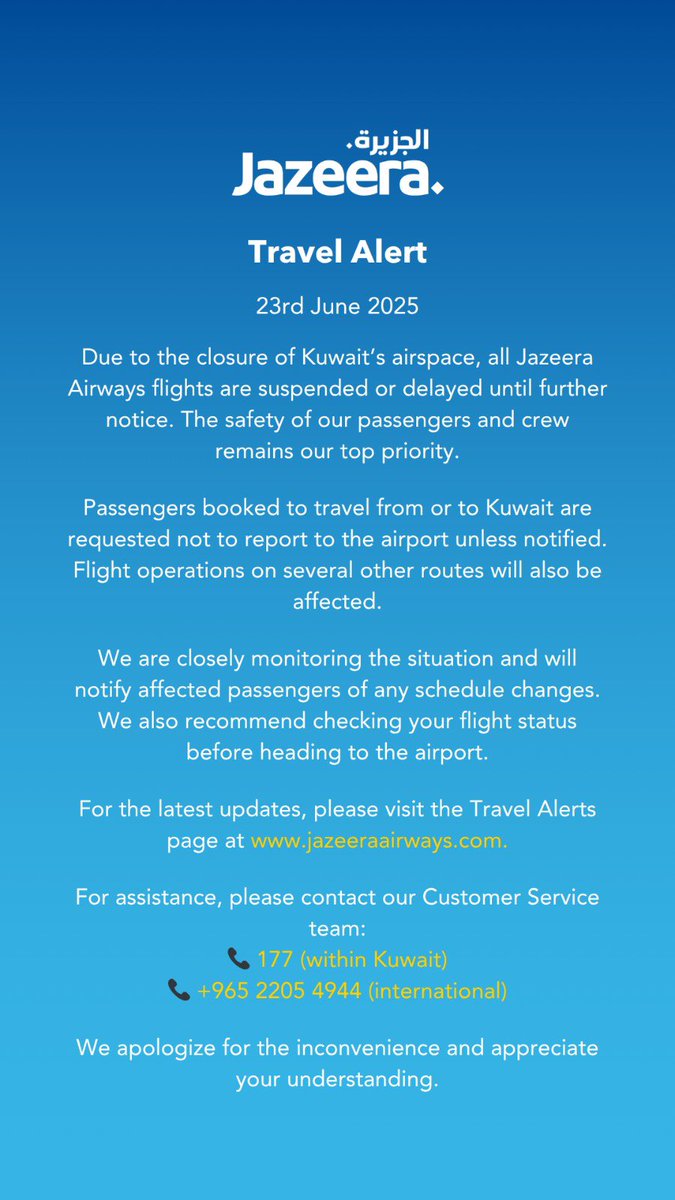
In a significant security move, Qatar has temporarily suspended all air traffic within its airspace as a precautionary measure amid escalating regional tensions following recent U.S. airstrikes on Iranian nuclear sites. The closure aims to ensure the safety of citizens, residents, and visitors amid threats of Iranian retaliation against the United States.
The Ministry of Foreign Affairs announced the suspension on Monday, emphasizing that competent authorities are closely and continuously monitoring the situation in coordination with regional and international partners. The Ministry reassured the public that updates will be provided through official channels and reiterated that the safety and security of everyone on Qatari soil remain the highest priority.
This decision has led to widespread flight disruptions, with inbound flights to Doha’s Hamad International Airport being diverted to alternate airports starting Monday afternoon. Qatar’s airspace is a critical corridor connecting Europe, Asia, and Africa, making the closure impactful for global aviation.
Qatar hosts the Al Udeid Air Base, the largest U.S. military installation in the Middle East, housing approximately 10,000 troops. The airspace closure affects both military operations and commercial aviation, including Qatar Airways, a major regional carrier.
In response to the heightened threat environment, the U.S. and UK governments have issued shelter-in-place advisories for their citizens in Qatar. However, Qatari officials have sought to downplay fears of an imminent attack, stating that warnings from foreign embassies do not necessarily indicate specific or credible threats and affirming that the security situation remains stable.
Regional airlines are adapting by rerouting flights through alternative corridors such as over Afghanistan, the Caspian Sea, or the Red Sea to bypass the affected airspace.
The duration of the airspace closure remains uncertain as Qatar continues to evaluate the evolving geopolitical situation and stands ready to implement further protective measures as necessary.

































.jpg)


















.jpg)

